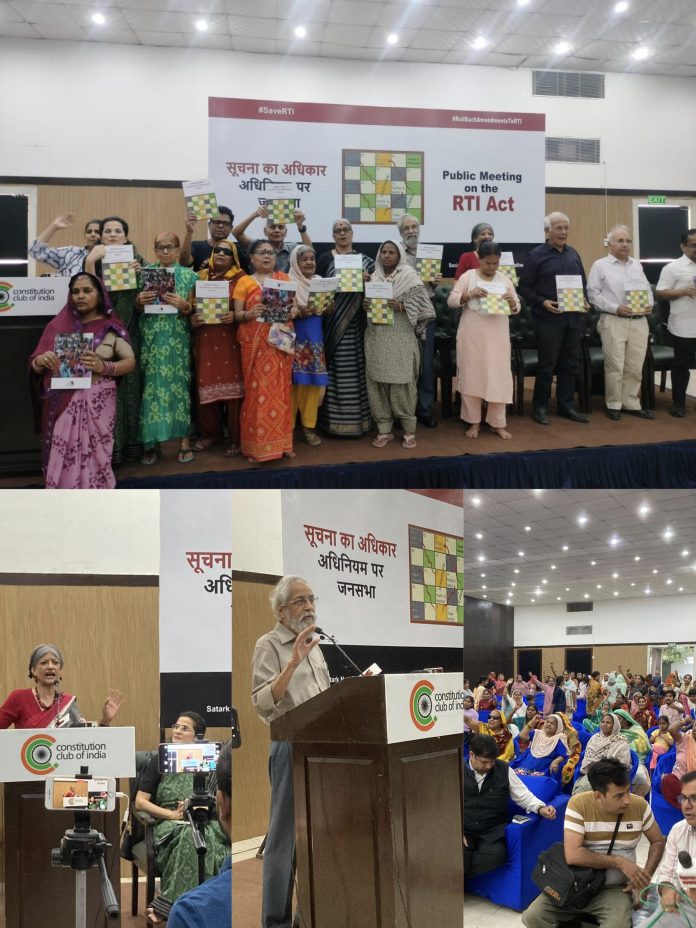– Abdul Bari Masoud
New Delhi: At a public event in Constitution Club, former Supreme Court judge Justice Madan Lokur said the government is weakening the RTI Act and warned that the Data Protection Act could shield corruption.
He launched the ‘Report Card of Information Commissions’, prepared by citizens’ group Satark Nagrik Sangathan, which shows huge backlogs and delays in RTI appeals across India.
Justice Lokur stated that the government is undermining the RTI Act by not appointing commissioners, leading to long delays and increasing pendency.
He also pointed to the 2019 RTI amendments that weakened commission autonomy and criticized the Data Protection Act for exempting personal information, thus encouraging corruption.
Wajahat Habibullah, former Chief Information Commissioner, echoed these concerns, saying the government is weakening the RTI Act instead of strengthening it to improve governance.
Key findings of the report include:
• 7 out of 29 commissions were non-functional between July 1, 2023, and June 30, 2024.
• 2 commissions are still defunct.
• Over 4 lakh cases are pending in commissions across India.
• 14 commissions have wait times of over 1 year.
• 5 commissions had no Chief Commissioner as of October 2024.
• Some commissions returned large numbers of cases without giving any order; CIC returned 42% of appeals.
• Commissioners lack diversity: 57% are retired government officers, only 9% are women, and none of the commissions is led by a woman.
At the meeting, several citizens shared their stories of how the RTI Act helped them access their rights.
Devaki from Dakshipuri used RTI to secure a pension for her niece Madhu, who has cerebral palsy. After delays, CIC ordered Rs. 92,000 as compensation for 3 years of denied pension.
Chandrawati, a disabled woman from Lal Gumbad, said her pension was stopped without notice. She used RTI but her second appeal has been pending with CIC for over a year.
Currently, CIC has only 3 commissioners. 8 posts are vacant. There is a backlog of 25,000 cases.
Justice Lokur emphasized that delaying appointments is a way to sabotage the RTI Act.
Economist Jayati Ghosh said the Data Protection Act not only weakens the RTI Act but also intimidates those who gather information like researchers and journalists.
Annie Raja said the RTI Act empowered women and the government must not weaken it. She said her group, NFIW, will campaign nationwide to protect the law.
Ashok Sharma of the Constitutional Conduct Group said the government knows the power of information and is resisting people’s right to know.
Praveer Peter from Jharkhand shared how RTI helped expose corruption in mining and land records. He noted that Jharkhand’s Information Commission has been defunct for 5 years due to the absence of a Leader of Opposition in the Assembly. Thousands of appeals remain unheard.
Anjali Bhardwaj of SNS said people must rise to protect the RTI Act. She said citizens fought for this law and now must fight to save it.
She highlighted threats to the law including delayed appointments and amendments that weaken its power.




